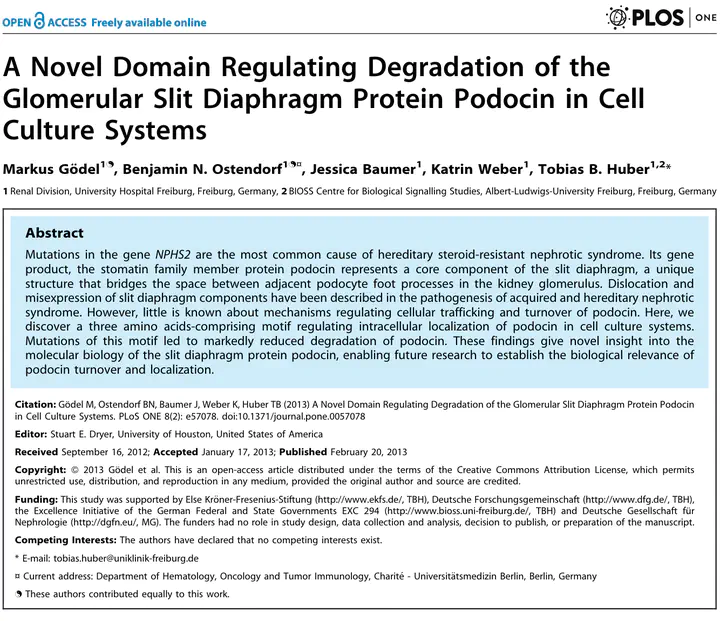A Novel Domain Regulating Degradation of the Glomerular Slit Diaphragm Protein Podocin in Cell Culture Systems

Abstract
Mutations in the gene NPHS2 are the most common cause of hereditary steroid-resistant nephrotic syndrome. Its gene product, the stomatin family member protein podocin represents a core component of the slit diaphragm, a unique structure that bridges the space between adjacent podocyte foot processes in the kidney glomerulus. Dislocation and misexpression of slit diaphragm components have been described in the pathogenesis of acquired and hereditary nephrotic syndrome. However, little is known about mechanisms regulating cellular trafficking and turnover of podocin. Here, we discover a three amino acids-comprising motif regulating intracellular localization of podocin in cell culture systems. Mutations of this motif led to markedly reduced degradation of podocin. These findings give novel insight into the molecular biology of the slit diaphragm protein podocin, enabling future research to establish the biological relevance of podocin turnover and localization.